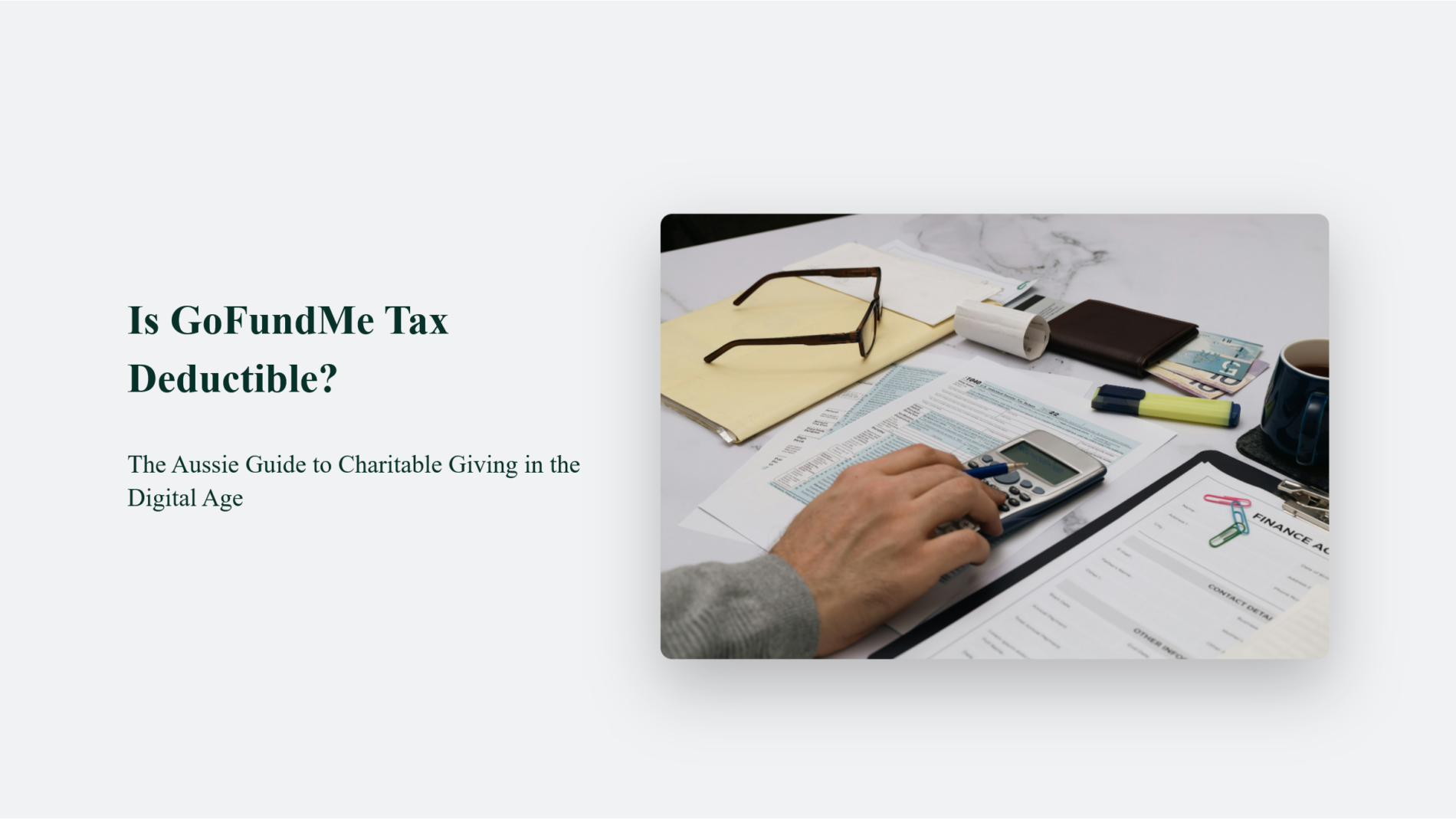
Let's face it: Australians are a generous bunch. We've got hearts as big as our continent and wallets that open faster than a kangaroo can hop when someone's in need. But in this era of digital fundraising, things can get a bit murky when it comes to tax time. So, let's dive into the world of GoFundMe and find out Is GoFundMe Tax Deductible, shall we?

GoFundMe has become the digital equivalent of shaking a tin can on the street corner but with the potential to reach millions. It's like if your local Bunnings sausage sizzle suddenly went viral and started raising funds for causes across the globe.
Impressive, right? But here's the kicker: not all GoFundMe campaigns are created equal in the eyes of the Australian Taxation Office (ATO). Some might get you a nice little tax deduction, while others are about as deductible as your morning flat white (spoiler: they're not).
So, is GoFundMe tax deductible? Well, it's not a simple yes or no answer. It's more like a "yeah, nah, maybe" situation. Here's the deal:
Want to make sure your generous spirit aligns with the ATO's guidelines? Here's what you need to know:
Before you hit that "Donate" button, run through this quick checklist:
If you've ticked all these boxes, congratulations! You're on track for a tax-deductible donation.
Let's crunch some numbers, shall we? Australians are a generous lot. In fact, 5 out of 6 Aussies donate to charitable organisations, with the average tax-deductible donation sitting at a respectable $633.72 per person (as of 2018).
That's more than the cost of a decent Barbie, mate! But here's the thing: with the rise of platforms like GoFundMe, more and more Australians give in ways that might not always be tax-deductible. We're so eager to help, but we sometimes forget to check if it'll help us come tax time too.
Remember the bushfires of 2019-2020? GoFundMe campaigns popped up faster than new shoots after a good rain. Australians dug deep, donating to everything from wildlife rescue to rebuilding communities. It was a beautiful display of the Aussie spirit.
But here's the rub: many of these campaigns, while incredibly worthy, weren't set up by registered charities. It means a lot of generous Aussies missed out on potential tax deductions. It's a bit like scoring a century in backyard cricket - impressive, but it doesn't count on your official record.
Let's take a hypothetical situation. Imagine your neighbour, let's call her Sheila, who starts a GoFundMe campaign to help her son's footy team get new uniforms. You chip in $100 because you're a top bloke. Come tax time, you're feeling pretty chuffed about your generosity and go to claim it as a deduction.
But hold up! Unless Sheila's son's footy team is somehow a registered charity with DGR status (spoiler: it's probably not), that $100 is about as deductible as your weekly meat pie from the local bakery. Sure, it's a good deed, but not one the ATO will pat you on the back for.
As we move further into the digital age, platforms like GoFundMe are changing the way we think about charity. It's no longer just about dropping coins in a collection tin or writing a cheque to a big organisation. We can directly support causes and individuals with just a few clicks.
But with this new frontier comes new challenges. How do we balance these platforms' immediacy and personal nature with the need for accountability and tax compliance? It's a question that will likely keep the ATO folks scratching their heads for years to come.
In conclusion, while GoFundMe has revolutionised how we give, it's also added a new layer of complexity to our tax returns. But don't let that stop you from being generous. After all, it's not about the tax deduction - it's about making a difference. And that, my friends, is something no accountant can put a price on.
Remember, when in doubt, always consult with a tax professional. They're like the sherpas of the financial world, guiding you safely through the treacherous terrain of tax law. And who knows? With their help, you might just find that your generosity pays off in more ways than one. So, go forth and donate to Australia. Remember to keep one eye on your heart and the other on your tax return. It's the Aussie way, after all.
No, only donations to registered charity campaigns on GoFundMe are likely to be tax-deductible.
Look for the charity's name next to the GoFundMe organizer's name on the campaign page.
Sign up to receive relevant advice for your business.